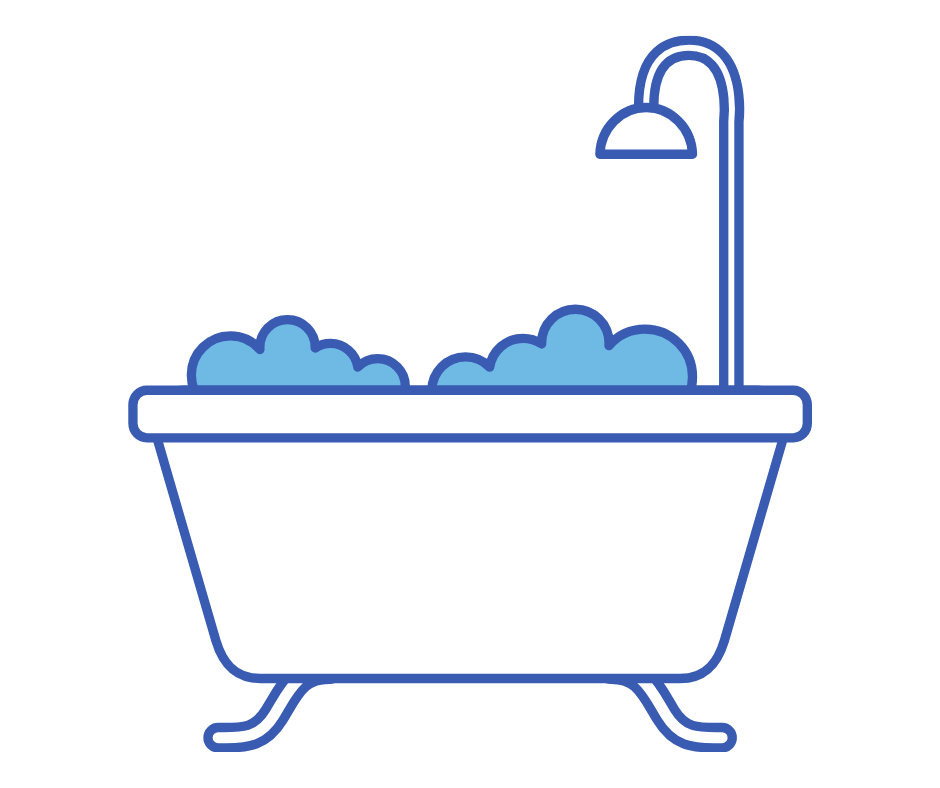Safety of Essential Oils in a Bath
- Jean McCabe
- Jun 26, 2025
- 3 min read
Let's talk about the safety of essential oils in the bath. Essential oils can be a wonderful addition to a bath, who doesn't like soaking in the tub relaxing, they offer both therapeutic and aromatic benefits. However, their use requires careful consideration to ensure safety. Here are some key points to keep in mind when using essential oils in a bath:

Why Safety Matters
Essential oils are highly concentrated plant extracts that can cause skin irritation, allergic reactions, or other adverse effects if improperly used. Their undiluted application directly to the skin should always be avoided, and this holds true for bath use as well. If you pour the essential oils directly into the bathtub they will just sit on top of the water. Imagine getting in the tub and the warmed oils touching sensitive skin and body areas stinging the nether regions (In my best Amy voice from Big Bang Theory) NOT GOOD.
Guidelines for Safe Use
1. Dilute Essential Oils
Essential oils should always be used diluted when using them on the skin or in a bath. I know some people tell you otherwise, but they are misinformed. There may be rare circumstances for using them undiluted but that should only be done under the direction of a Certified Aromatherapist. They can cause adverse reactions, once you have a sensitivity to an oil you will most likely never be able to use it again. Do your research and dilute essential oils properly. (1) (2) (3)
As stated above, never add essential oils directly to bathwater as they will not dissolve and can float on the surface. This might result in direct contact with the skin, increasing the risk of irritation or burns. So how do we dilute essential oils for the bath? I can tell you not to use baking soda, cornstarch, witch hazel, glycerin, and aloe gel. These may be soluble in water, but they do not dilute essential oils. (4)
You can use one of the following
· Unscented liquid soap or body wash. I use unscented Aveno ™ for my grandbabies, and it is available at most stores. It also gives you wonderful bubbles. Being unscented the aroma of the essential oils shine through.
· Carrier oils such as fractionated coconut oil or jojoba oil are less greasy/oily. Carrier oils can cause the tub to become slippery, so caution is needed when using them to dilute your essential oil for a bath.
· Solubol is what aromatherapist use in their products, but it is pretty expensive.
I am sharing links below on using essential oils safely with babies, toddlers and children below (5)(6)
2. Use Appropriate Dosages
Per Robert Tisserand essential oils should be used at a 1 to 4% dilution rate. A safe amount is generally 5 to 20 drops (total) oil added to a tablespoon of carrier substance and mixed in for an average-sized bathtub. Using too much can overpower the senses or cause skin sensitivity.
3. Choose Skin-Friendly Oils
Some essential oils are gentler on the skin and more suitable for baths. Examples include:
· Lavender
· Chamomile
· Sandalwood
There are many other choices you can choose from.
Avoid oils that are known to be strong irritants. This includes hot essential oils that can cause irritations such as cinnamon, clove, oregano, peppermint, basil, wintergreen, lemongrass, and certain thyme ct thymol.
4. Do a Patch Test
Conduct a patch test on a small section of your skin before using a new essential oil to ensure you don't experience an allergic reaction.
How to do a patch test:
Perform a patch test with new essential oils to ensure you are not sensitive to them. To do this add a drop of essential oil to a small amount of carrier oil and apply to skin at the inner elbow, watch for signs of irritation, itchiness, redness, inflammation etc.
Precautions to Consider
· If you have sensitive skin, eczema, or other skin conditions, consult a healthcare provider before using essential oils in your bath.
· Pregnant individuals and those with respiratory issues should consult a doctor before using certain essential oils.
· Keep essential oils out of reach of children and pets, as some oils can be toxic if ingested or misused.
Conclusion
When used properly, essential oils can enhance your bath experience by providing relaxation and invigorating aromas. The key to enjoying their benefits lies in proper dilution, choosing skin-friendly oils, and following safety precautions. Always prioritize your well-being and consult a professional like me if you are uncertain about their use.




Comments